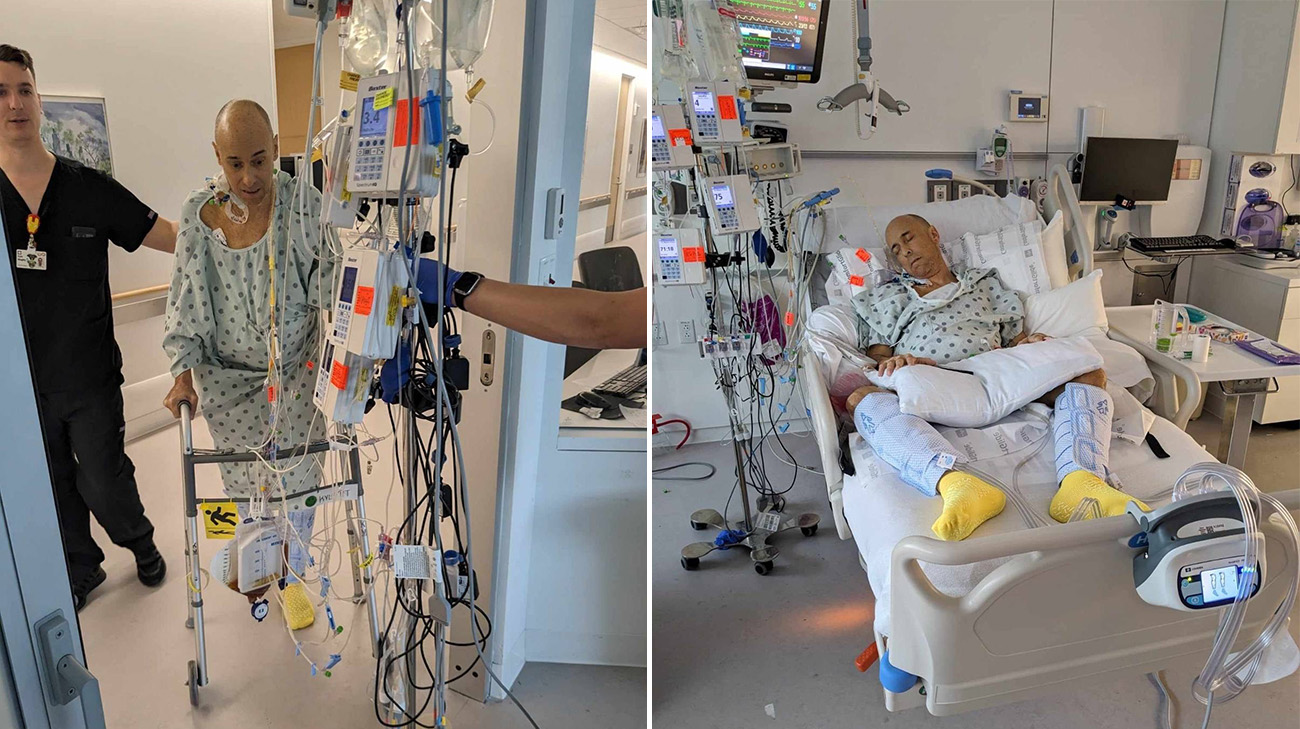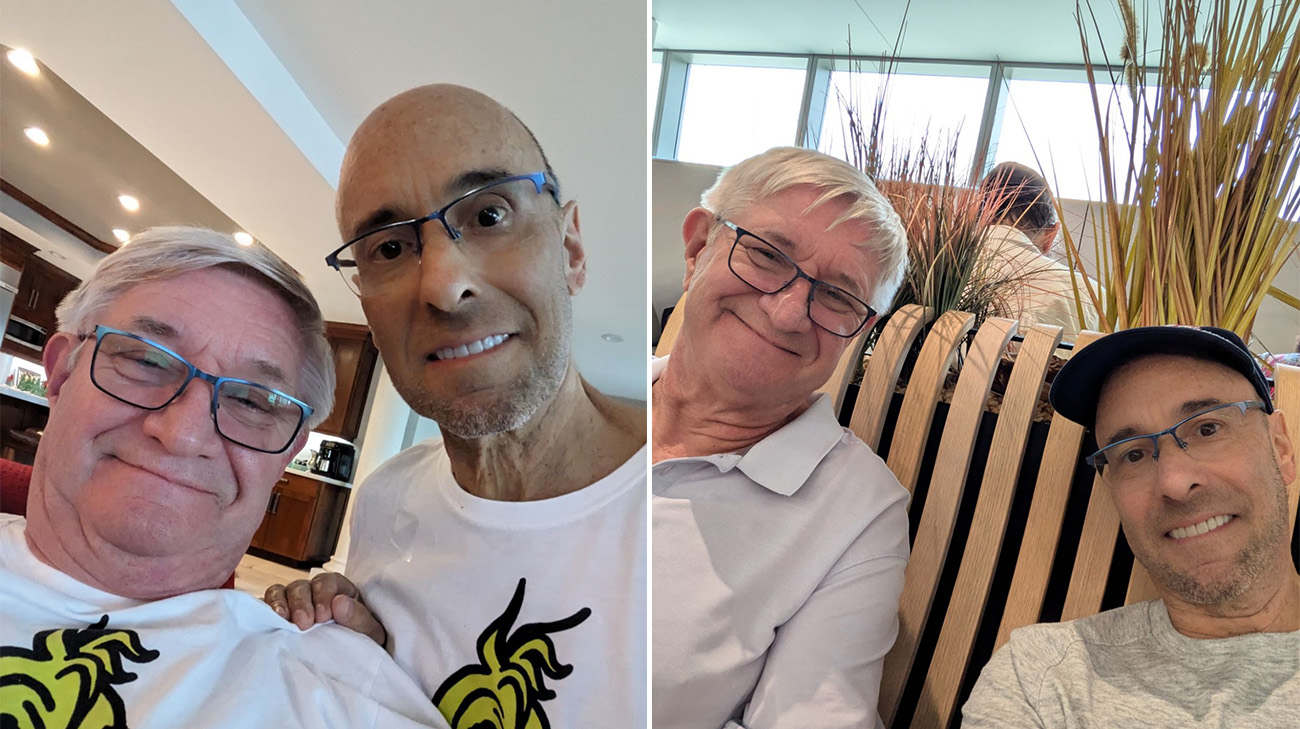Ken Hollander never wanted to have a liver transplant – until it became his only option. And now, he couldn’t be more grateful and happy that he did.
“I have a second chance at life now,” he says. “There’s so many things I want to do and so many things I can do.”
More than 20 years ago Ken was diagnosed with ulcerative colitis, a chronic inflammatory bowel disease. He learned to adapt to its symptoms, even with his heavy travel schedule.
However, 15 years after he was first diagnosed, he started to have consistently elevated liver enzymes. His gastroenterologist, Andrew Ukleja, MD, ordered tests to determine the cause. The results showed that Ken had primary sclerosing cholangitis (PSC), a rare progressive disease highly associated with inflammatory bowel disease that damages the bile ducts and liver. It causes chronic inflammation and scarring. Scar tissue eventually restricts the flow of bile through the ducts and stops the liver from functioning properly.
Ken was just 49 years old at the time and terrified of this life-threatening disease for which the only cure was a liver transplant.

Ken recovering post-liver transplant at Weston Hospital.
“I did not want to pursue a liver transplant,” Ken says. Instead, he hoped he could avoid severe symptoms long enough to “die from something else” eventually.
Seven years after his PSC diagnosis Ken said he realized “the only way out was a liver transplant.” He had become more fatigued, and it progressed to the point where his exhaustion was interfering with the basic activities of his daily life.
”Something switched in my brain and said I need to do this,” he says. “I was going to do everything I could to be successful."
“I choose to look at everything as I’m alive and this is what I have to do to stay healthy and I’m going to do it.”
By the time Ken met with Antonio Pinna, MD, Director of the Abdominal Transplant Center at Cleveland Clinic in Florida, and Xaralambos “Bobby” Zervos, DO, Director of the Liver Transplant Program at Cleveland Clinic in Florida, his disease had advanced quite a bit. He had fluid in his abdomen and was jaundiced.
“Ken was already quite sick when he came in,” Dr. Pinna says. “He needed a liver soon.”
Ken was put on the transplant recipient list to wait for a liver to become available. He was fearful of the unknowns in getting a transplant and worried about “trading one problem for another.” But he says he decided to educate himself and, at the same time, he committed himself to focusing on one step at a time until he was eventually cured.
“Transplant was really Ken’s way to get past all of these life-threatening situations that were coming,” Dr. Zervos says.
He did not have to wait long on the transplant list. When a liver became available from a deceased donor, Ken had the surgery at Cleveland Clinic Weston Hospital, a place he says “just felt right for me.”
“It’s a large institution but it is very personable,” he says. “It’s impossible to explain the high quality and level of care I received. I could not have gone through this process without all of these caring, kind, smart and motivating people.”
He spent eight days in the hospital post-surgery. His recovery has been normal, and he says he’s adjusted to the numerous medications, blood tests and follow-up appointments that are required after a transplant.
“It just becomes a part of your life,” Ken says. “I choose to look at everything as I’m alive and this is what I have to do to stay healthy and I’m going to do it.”

Left: Ken and his partner, John, a month prior to surgery. He was underweight and severely jaundiced. Right: Ken no longer jaundiced and enjoying life with his new liver.
He says he is happier and healthier than he has ever been. He is looking forward to getting back to traveling and hopes to educate more people about PSC. He is grateful for the sacrifices people make when they donate their organs and for the quality of healthcare he received at Cleveland Clinic.
“The Cleveland Clinic team was so outstanding, and I just owe everything to them, literally everything, my life to them,” Ken says.
Related Institutes: Digestive Disease & Surgery Institute

